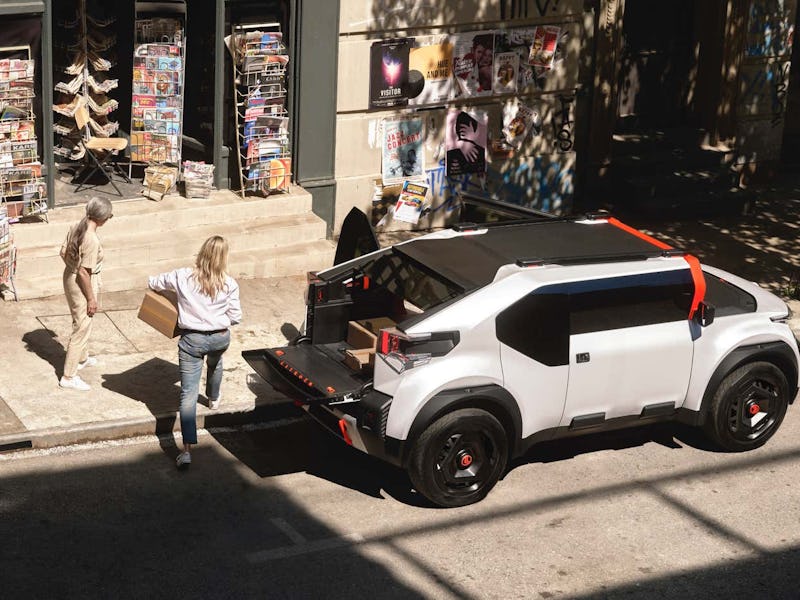Citroën's new concept EV uses cardboard for parts — and it's brilliant
Citroën’s Oli EV concept features a hood, roof and bed panels made of recycled cardboard.

Forget metal, recycled cardboard is where it’s at. Citroën showed off its Oli EV concept which will be built with a hood, roof, and bed panels made from cardboard. These recycled honeycomb cardboard parts can support your weight and are even stronger than metal, according to Citroën.
Citroën is going full minimalist with this conceptual EV, only including the essentials of what you need in a car. The Oli is expected to weigh around 1,000 kilograms with lightweight seats made from recyclable materials. Citroën designed the Oli to support your Bluetooth speaker or smartphone to serve as the EV’s infotainment system.
Citroën’s Oli will have a pretty ho-hum range of 248 miles and a top speed of around 68 mph, but that should be enough to serve you as a daily driver. You can get the Oli charged from 20 to 80 percent in around 23 minutes.
The oli gives you just the bare essentials of what you need to get around town.
Offsetting battery impact — EVs may be better overall for the environment, but they still have a carbon footprint when you consider the lithium batteries necessary to power them. Mining for the raw materials to create EV batteries and the disposal of said batteries can still have a negative impact on the environment.
Still, automakers should continue taking more steps toward reducing the carbon footprint of manufacturing EVs. Considering EVs were aimed at reducing our impact on the environment, using more sustainable materials feels like a no-brainer. Batteries will clearly remain a crucial part of developing EVs, but any efforts at offsetting the carbon footprint are definitely worth pursuing.
Even the oli’s interior has been stripped down and built with recyclable materials.
A promising concept — The Oli is just a concept vehicle at the moment, so we can’t expect Citroën to mass-produce this EV quite yet, but the design still offers a step in the right direction for automakers.
Other brands have already taken to sustainability efforts, like Fisker’s Ocean EV where most of the vehicle is made from recycled materials like bottles and fishing nets. BMW even developed concepts like the i Vision Circular, a compact EV that is designed entirely around recycled and recyclable materials.